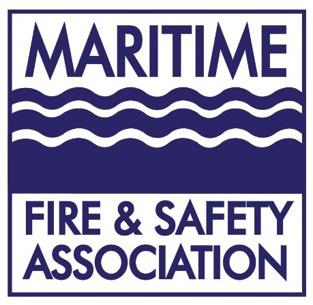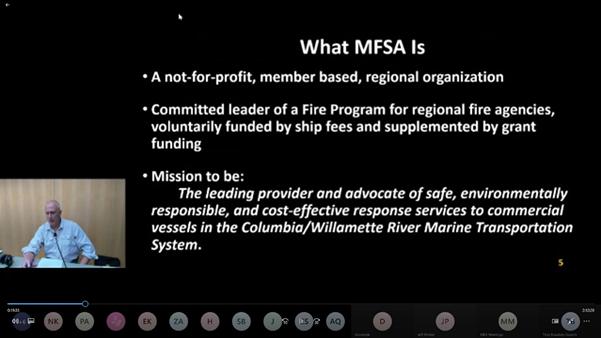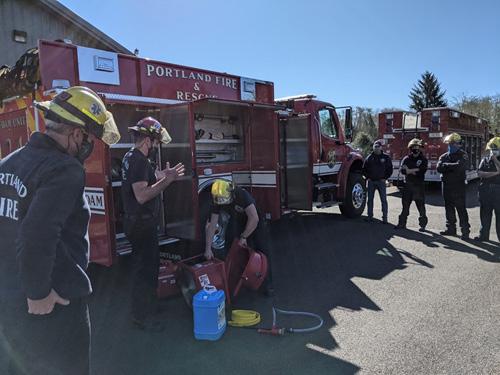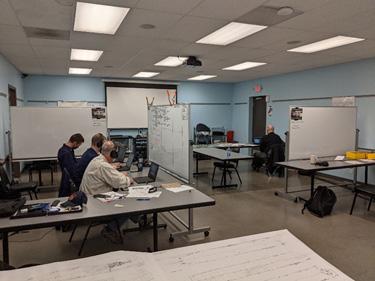
3 minute read
Maritime Fire & Safety Association
Due to surging COVID-19 cases and the extreme contagious nature of the current variant, the Maritime Fire & Safety Association (MFSA) has decided to cancel its Annual Meeting luncheon. Instead, a remote-only member business meeting held on Wednesday, January 26, 2022. MFSA Members received invitations with information on how to log on to the meeting.
Hopefully, we’ll see you all in person next year!! Thank you to all our members:
Advertisement
Chevron Columbia Grain International, LLC Columbia Pacific Bio-Refinery CRSOA EGT, LLC Emerald Kalama Chemical LLC Kalama Export Company Kinder Morgan Inc. McCall Oil and Chemical Group Nippon Dynawave Packaging Company NuStar Energy, LP Port of Astoria Port of Columbia County Port of Kalama Port of Longview Port of Portland Port of Vancouver, USA Schnitzer Steel Products Temco United Grain Corporation Vigor Industrial/ Cascade General WestRock Longview LLC Weyerhaeuser Co. The Maritime Fire & Safety Association’s Vessel Response Plan (Plan) has once again received full approval from Washington and Oregon. The Plan is an umbrella plan that provides an economical way for commercial vessels calling on the Columbia and Willamette Rivers to meet the state requirements for both states. This plan approval is good for five years.

One of the most critical components of MFSA/FPAAC is the periodic training of marine firefighting personnel that is offered to its member agencies. The FPAAC Training Program consists of the following elements:
1. Awareness Level Training
2. Operations Level Training
3. Technician Level Training
4. Marine Fire Command Level Exercises
For more information, please visit our website: www.mfsa.com Holly Robinson, General Manager: robinson@pdxmex.com Mason Sullivan, Administrative Coordinator: sullivan@pdxmex.com

Screenshot from a recent Awareness Level Training
Awareness Level Training is offered annually and typically delivered by way of a presentation from the FPAAC Training Coordinator. It is also available for use by member agencies at any time in the form of a selftaught PowerPoint located on the MFSA website.
Marine Firefighter Awareness prepares personnel to assist with firefighting operations, but not to enter an immediately dangerous to life or health atmosphere. A responder with this level of training could be expected to support operations land-side or on the weather deck of a vessel, depending on the level of safety risk assessed on-scene.
Operations Level Training is offered as a part of the annual training program, typically delivered in a classroom setting, and may involve the use of specialty equipment or a vessel tour.
Operations Level personnel are trained to the most basic shipboard interior operations, which allows them to perform safely and efficiently in a tactical role at a vessel incident, recognize and report hazards through the chain of command, and take appropriate actions when those hazards become life threatening. Technician Level Training is offered quarterly and consists of four eight-hour hands-on training modules. This can be delivered in a classroom setting, though it is usually more focused on the use of specialty equipment. Ultimately, the curriculum is determined and administered by the FPAAC Training Coordinator in conjunction with the FPAAC Program Manager.

Technician Level personnel are considered the leaders of Operations and Awareness Level, directing actions as needed. They are familiar with vessel design and construction and their relation to the fire suppression activities. Technician Level personnel are also familiar with the best practices of incident strategies and can serve as advisers to the incident commander or to the general staff if needed.
Marine Fire Command Exercises are offered annually and are typically held in a classroom setting.
The Incident Commander (IC) is the key to the plan’s success. The IC must understand all training levels and how to use each level in mitigating a largescale incident. By recognizing present and potential hazards, the IC can support the mitigating strategies by assigning tasks appropriately, delegating responsibilities based on the incident size and complexity.









